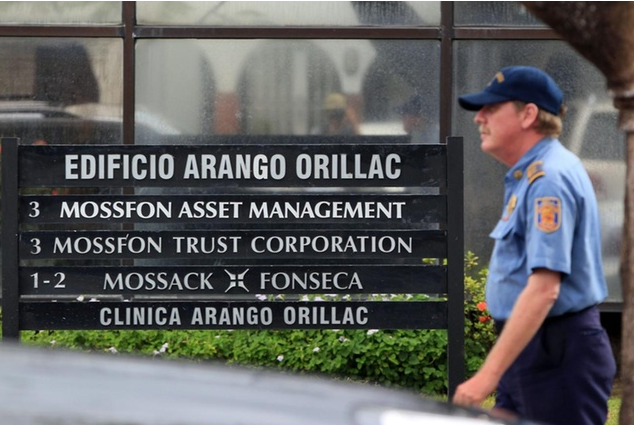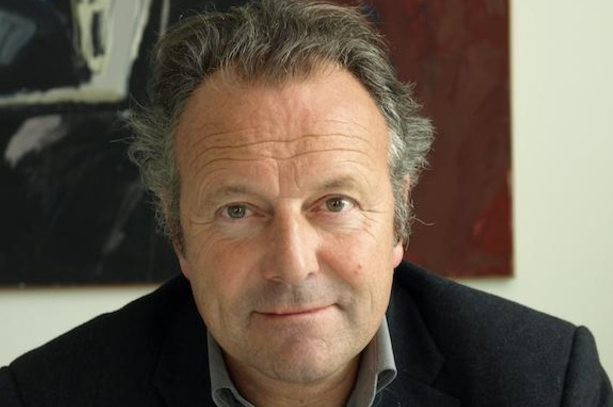The Panama Papers leaked by Panamanian law firm Mossack Fonseca revealed that 1,339 Swiss lawyers, financial advisers and other middlemen had set up more than 38,000 offshore entities over the last 40 years. (Keystone / Alejandro Bolivar) The Swiss government faces resistance to efforts to tighten anti-money laundering rules that close loopholes for lawyers who act as “advisors” in setting up offshore financial structures. Anti-corruption expert Mark Pieth writes how the lawyer lobby in Switzerland is trying to maintain their special status at the expense of Switzerland’s attempts to improve its reputation as a laundering haven. Last week, the Swiss parliament voted against the government proposal to strengthen anti-money laundering laws, which included
Topics:
Swissinfo considers the following as important: 3.) Swiss Info, 3) Swiss Markets and News, Business, Featured, newsletter
This could be interesting, too:
Nachrichten Ticker - www.finanzen.ch writes Die Performance der Kryptowährungen in KW 9: Das hat sich bei Bitcoin, Ether & Co. getan
Nachrichten Ticker - www.finanzen.ch writes Wer verbirgt sich hinter der Ethereum-Technologie?
Martin Hartmann writes Eine Analyse nach den Lehren von Milton Friedman
Marc Chandler writes March 2025 Monthly

The Panama Papers leaked by Panamanian law firm Mossack Fonseca revealed that 1,339 Swiss lawyers, financial advisers and other middlemen had set up more than 38,000 offshore entities over the last 40 years. (Keystone / Alejandro Bolivar)
The Swiss government faces resistance to efforts to tighten anti-money laundering rules that close loopholes for lawyers who act as “advisors” in setting up offshore financial structures.
Anti-corruption expert Mark Pieth writes how the lawyer lobby in Switzerland is trying to maintain their special status at the expense of Switzerland’s attempts to improve its reputation as a laundering haven.
Last week, the Swiss parliament voted against the government proposal to strengthen anti-money laundering laws, which included additional due diligence measures for all service providers, including lawyers that serve as advisors.
In the 1980s, Swiss banks were considered preferred laundering havens of drug barons. The funds of the Cali and Medellin Cartels were traced repeatedly to reputed banking institutions in Switzerland.
Since this time, Switzerland has made huge efforts to rid itself of this problematic reputation. This is particularly true in the banking sector. Many launderers have moved to other parts of the world.
However, the problems of money laundering have not left Switzerland. This is because laundering relies on organisers of so-called “structures”.
Typically, such an organiser would create or acquire shell corporations incorporated at offshore centres, and then, on behalf of it, open bank accounts, typically at another financial centre. In doing so, the organiser creates a triple veil of secrecy, combining banking secrecy with the opacity of shell corporations with professional privilege.
The Panama Papers have demonstrated that thousands of such structures have been organized by lawyers based in Switzerland.
These lawyers were making use of a legal loophole. Whereas, according to Swiss law, a lawyer in the context of traditional advisory and defense work would be protected by professional privilege, a lawyer (or organizer) acting as a financial operator would lose this protection and thus be subject to anti-money laundering rules, including the obligation to report suspicious transactions.
Rightly, the Financial Action Task Forceexternal link (FATF) in its country examination of Switzerland in 2016 criticised this loophole.
The Swiss Government has proposed new legislation to amend the situation. It has suggested introducing a new group of professionals, which would be subject to anti-money laundering rules called “advisors”. The project is overall sound.
It makes, however, one serious mistake when it comes to the obligation to notify suspicious activity. As in existing law, it exempts traditional lawyers from telling on their client (Art. 9 s. 2 Anti-Money Laundering Act (AMLA)). However, it adds a new, complicated exception. A lawyer acting as an advisor by creating companies in places like Panama could evade the obligation to report, as long as the lawyer does not get involved in monetary transactions for this company (proposed Art. 9 s. 2 AMLA).
An ordinary fiduciary, however, does not have this exception at their disposal. Does this newly proposed regulation send the message then that if you want to create an offshore company from Switzerland and stay under the radar, please use a lawyer?
It may well be that this rule is a concession to the overly nervous legal profession. Lawyers and fiduciaries fear losing part of their livelihood as organizers of financial structures worldwide for anybody seeking the opacity of the “shadow economy”.

Mark Pieth, a professor of criminal law at the University of Basel, was chairman of the OECD Working Group on Bribery between 1990 and 2013. (University of Basel)
The views expressed in this article are solely those of the author, and do not necessarily reflect the views of swissinfo.ch.
Tags: Business,Featured,newsletter
